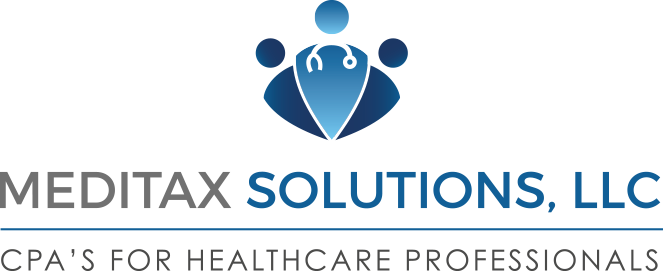Healthcare CPA
 Time is money. If you want your practice to be as efficient and economically prosperous as possible, you don’t want to spend valuable time dealing with the effects of clutter and chaos. Disorganization is shown to have a direct negative impact on productivity and, by extension, your earning potential as a practice.
Time is money. If you want your practice to be as efficient and economically prosperous as possible, you don’t want to spend valuable time dealing with the effects of clutter and chaos. Disorganization is shown to have a direct negative impact on productivity and, by extension, your earning potential as a practice.
Whether you feel like you’re drowning in papers or you want to learn tips to take your efficiency to the next level, here are some tips to help you and your team get organized. Contact our team today to learn more about the strategies we can help you implement to ensure you’re getting the most out of your practice.
Clean Up the Clutter
When you have so many different things demanding your attention throughout the day, it can be difficult to keep on top of everything. If you’re not careful, papers and other clutter can accumulate faster than you realize. Once the pile starts to get away from you, it can be hard to ever work your way back through without having to set aside valuable time to sort through everything.
It’s easier to avoid getting yourself into this mess in the first place once you have organizational strategies in place. You might create a unique filing system for handling the various kinds of mail that comes through your office. Perhaps you set specific team members in charge of returning calls. The best system of organization is the one that works for you and your team.
Don’t Let Your Time Manage You
It can be difficult to prioritize the different duties of your work. It’s rare that even an hour will go by without a variety of different distractions. While you’ll have the occasional emergency that demands immediate response, most of these interruptions will not need to be addressed right away.
Resist the urge to drop everything every time a new email or task arises. Operating this way will only make it harder to actually accomplish any of your duties on time. Instead, learn to prioritize which things need to be addressed immediately and which can be done later. Delegate what can be passed to another and clarify deadlines for things that must be completed by you to allow accurate prioritization of tasks.
The day-to-day efficiency of your business can impact its long-term success. Don’t waste your time digging through clutter because you’re working without a plan. For more strategies for your success, contact our office.
Parlade & Schaefer, CPAS, PA
5975 Sunset Drive, Ste 802, South Miami, FL 33143
(305) 670-0400



 Did you know that more than 65% of failed businesses blame financial mismanagement as their downfall? This is why forming a good relationship with a professional financial advisor is paramount to the longevity of your business.
Did you know that more than 65% of failed businesses blame financial mismanagement as their downfall? This is why forming a good relationship with a professional financial advisor is paramount to the longevity of your business. Dental CPA Miami FL
Dental CPA Miami FL Though most of the attacks making headlines are those aimed at large organizations or political groups, roughly a third of all data security breaches in the last few years have occurred in the health care industry. Of these, employee error caused three times as many breaches as external attacks. In addition, more than half of the businesses who experience a security breach have fewer than 1,000 employees.
Though most of the attacks making headlines are those aimed at large organizations or political groups, roughly a third of all data security breaches in the last few years have occurred in the health care industry. Of these, employee error caused three times as many breaches as external attacks. In addition, more than half of the businesses who experience a security breach have fewer than 1,000 employees. Whether you’re starting a new practice or have been an owner dentist for years, the financial stress that can come from being a business owner can sometimes overwhelm even the most seasoned professionals. Our goal is to help you achieve complete financial freedom so that financial worries don’t interfere with your ability to work well.
Whether you’re starting a new practice or have been an owner dentist for years, the financial stress that can come from being a business owner can sometimes overwhelm even the most seasoned professionals. Our goal is to help you achieve complete financial freedom so that financial worries don’t interfere with your ability to work well. Many Americans live paycheck to paycheck. It can be a heart wrenching experience not being able to provide necessities for you loved ones. Americans are swinging in debt with many at no fault of their own. Financial hardships can pop up as fast as the next corner Starbucks. Or some people just overextend themselves. Our society is based upon consumption. Everyday we are blasted with advertisements for objects we are told we want. There’s a new smart phone every year, watches to go with that new phone, expensive sneakers, high-end headphones – these products boost our self-esteem. Make us feel high on the social latter. Buying even can just make us feel good.
Many Americans live paycheck to paycheck. It can be a heart wrenching experience not being able to provide necessities for you loved ones. Americans are swinging in debt with many at no fault of their own. Financial hardships can pop up as fast as the next corner Starbucks. Or some people just overextend themselves. Our society is based upon consumption. Everyday we are blasted with advertisements for objects we are told we want. There’s a new smart phone every year, watches to go with that new phone, expensive sneakers, high-end headphones – these products boost our self-esteem. Make us feel high on the social latter. Buying even can just make us feel good. According to Dr. Charles Blair, DDS, most dental practices are losing between $30,000 and $50,000 in potential profits. How can dental practices maximize return on their services and start to recoup capital? Here are three strategies to boost profits in your practice:
According to Dr. Charles Blair, DDS, most dental practices are losing between $30,000 and $50,000 in potential profits. How can dental practices maximize return on their services and start to recoup capital? Here are three strategies to boost profits in your practice: Whether you have been working for a few years or a few decades, it is important to plan for your retirement. However, many people have never created a plan for retirement based on income and lifestyle. Here are four questions to ask yourself while thinking about whether or not you can comfortably retire on time:
Whether you have been working for a few years or a few decades, it is important to plan for your retirement. However, many people have never created a plan for retirement based on income and lifestyle. Here are four questions to ask yourself while thinking about whether or not you can comfortably retire on time: Marketing is an essential part of attracting new business. Strong print and internet marketing materials can help introduce your practice to potential new patients. Glowing reviews and testimonials tell people that you have a trustworthy team and offer quality care. However, even the best marketing efforts won’t contribute anything to your business if you fail to convert leads into patients. There are a variety of reasons outside of your control that might stop someone from scheduling an appointment at your practice, but it’s important to make sure you do all you can to help motivate people to seek treatment with you. Below are some tips to help your team more effectively sell the value of your service to potential new patients.
Marketing is an essential part of attracting new business. Strong print and internet marketing materials can help introduce your practice to potential new patients. Glowing reviews and testimonials tell people that you have a trustworthy team and offer quality care. However, even the best marketing efforts won’t contribute anything to your business if you fail to convert leads into patients. There are a variety of reasons outside of your control that might stop someone from scheduling an appointment at your practice, but it’s important to make sure you do all you can to help motivate people to seek treatment with you. Below are some tips to help your team more effectively sell the value of your service to potential new patients.